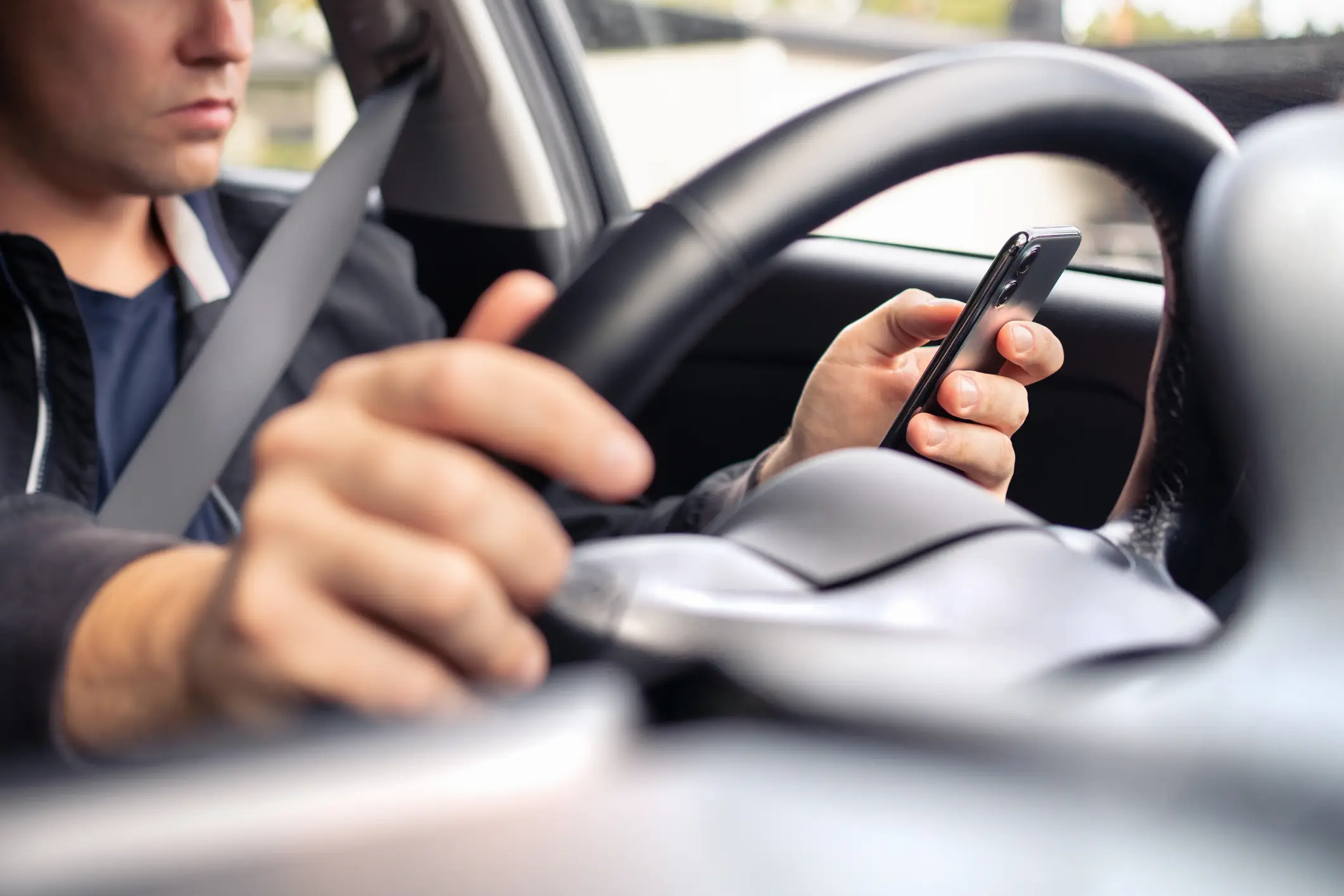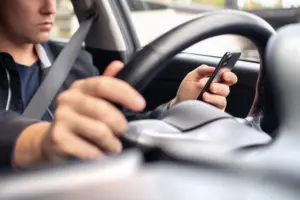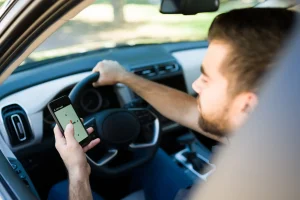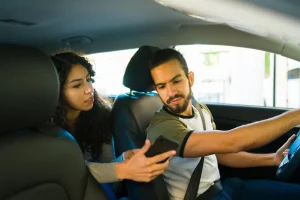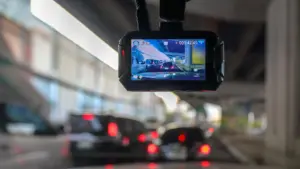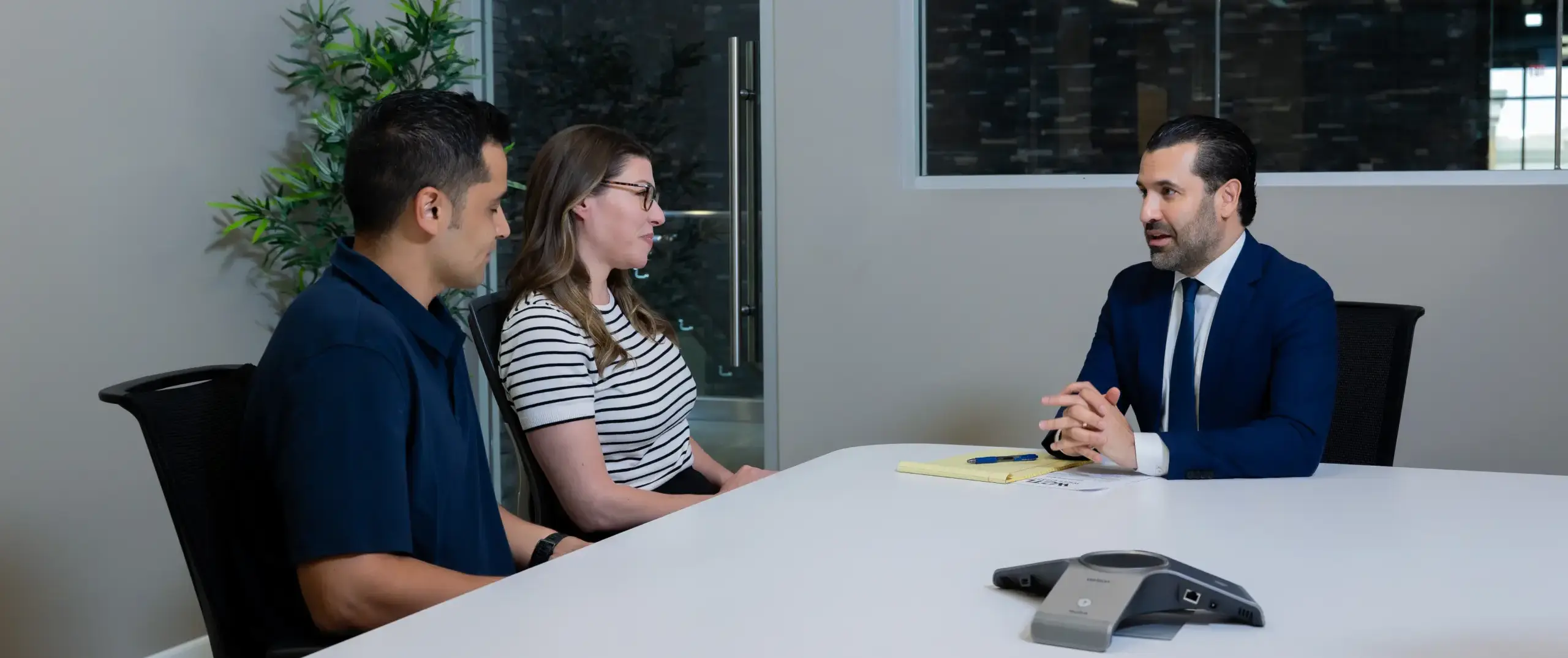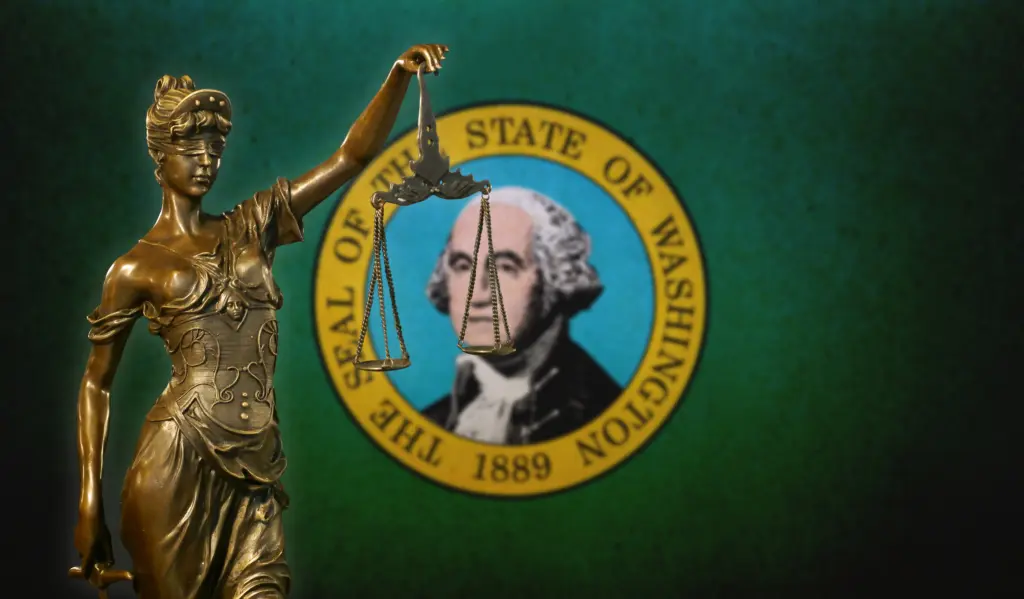If you were filmed without any knowledge or consent while in an Uber or Lyft and the rideshare driver posted the footage online, you may be able to pursue legal action against them. Our expert rideshare accident attorneys at West Coast Trial Lawyers can take a look at your case and determine whether your privacy rights were violated under state or federal laws.
With more than $1.7 billion in settlement recovered on behalf of our clients, we are confident in our ability to secure the best outcome possible for you. Our team works under a contingency-fee basis, meaning that you owe us nothing unless we settle your case.
To set up a FREE consultation, you can get in touch with us by calling (213) 927-3700 or completing our easy online contact form.
Is It Legal for an Uber or Lyft Driver to Record a Passenger in the Vehicle?
Uber and Lyft permit rideshare drivers to capture audio and video recordings during trips. However, legal and policy considerations will need to be kept in mind, specifically California Penal Code 632, known as the Invasion of Privacy Act. This law makes it illegal to record a confidential conversation without obtaining consent from all parties involved.
Uber allows dash cams to be used to document rides for safety purposes. But, rideshare drivers will need to comply with local laws to confirm whether the device can be operated during trips. In addition, they will need to request approval from all parties before recording them.
The company also has a feature called “Record My Ride,” which uses the driver’s phone to capture trips. Once this is accessed, passengers will be notified through the app that they are being filmed. Any footage acquired cannot be shared or streamed on social media or other platforms. Doing so will result in account deactivation.
Lyft shared a similar message in regards to dash cams. The company emphasized that using recording devices during trips will be subject to local rules and regulations. Drivers will need to secure consent before filming the trip, as well.
The dash cam configuration process will involve submitting its details through the Lyft Driver app. The company does not have access to these cameras, but will know if you have one in the vehicle once the registration is finalized.
They further go on to mention that broadcasting another individual without their consent is prohibited, and may lead to a disabled account.
Why Do Rideshare Drivers Keep Recording Devices in Their Vehicles?
Rideshare drivers allow strangers to enter their vehicle on a day-to-day basis, meaning that at any given moment, they could be met with a dangerous individual. By having a recording device present in the vehicle, the rideshare driver can have proof of any physical or sexual assault during a trip. Unfortunately, these cases are possible and have happened in the past, as highlighted in recent safety reports presented by Uber and Lyft.
Uber noticed an increase in physical assault fatalities between 2021 and 2022. Sixty-one percent of deaths were drivers using the app and 39 percent were riders. In almost half of the reports, the accused was a third-party, neither a rider nor driver. Within this timeframe, the company also saw an increase in motor vehicle theft, with it accounting for nearly 32 percent of driver fatalities.
In terms of sexual assault and misconduct, a total of 2,717 incidents were reported. In addition, from 2017 to 2022, 31 percent of cases were made against riders and 68 percent against drivers.
Lyft, on the other hand, had 23 fatal physical assaults, with a 185 percent increase in incident frequency rate compared to their previous report. They also had 2,651 cases of sexual assault, claiming a 21 percent decrease in incident frequency rate since their last update.
To sum it up, rideshare drivers are put at risk when performing work-related duties. Installing a dash cam into the vehicle can help in cases where physical or sexual assault occurs. Such footage can be used as evidence when filing a complaint. And if legal action is taken, it can help strengthen a claim and better the opportunity of acquiring fair compensation for any losses incurred.
What Is the Penalty If an Uber/Lyft Driver Illegally Recording You?
Under California Penal Code 632, it is prohibited for Uber and Lyft drivers to record without consent. This means that all parties must approve any confidential communication being recorded. If this is violated, drivers may face legal consequences, including the following:
- First offense is up to $2,500 fine or sentenced to county jail or state prison, or both
- Repeated offenses will result in up to $10,000 fine or 1 year in county jail or state prison, or both
Tips for Rideshare Drivers Using Dash Cams
Uber and Lyft drivers are allowed to use a dash cam when offering rideshare services to passengers. However, they must be careful when using the device as there are certain policies and city laws enforced to prevent its usage during trips.
Below, we have created a list of tips for rideshare drivers to consider when using a dash cam to record passengers who enter the vehicle:
- Before purchasing a dash cam, make sure you are legally allowed to use one in the locations you plan on offering rideshare services.
- Notify the passenger about the dash cam whether it be written on a sign or verbally mentioned.
- Place the dash cam in a visible area.
- Inform the passenger about your reason for having the dash cam installed in the vehicle, if asked.
- Only use the dash cam for safety purposes.
- Do not post any dash cam footage online. If your passenger committed negligent actions, such as physical or sexual assault, you should submit the recording to whichever rideshare company you worked under at the time of the incident.
By following these suggestions, you can avoid facing legal consequences for violating Uber or Lyft policies or city laws.
What Should You Do If Your Rideshare Driver Is Recording You?
If you believe your rideshare driver is recording you without your consent, you should ask if they are doing this with audio, video, or both. The response you receive will confirm whether they are performing illegal actions. Should that be the case, be sure to take note of their:
- Name
- License plate number
- Vehicle information
It is also advisable to capture a screenshot of the trip details in the app as additional proof to include in your complaint.
If you do not feel comfortable in the vehicle, you are allowed to end the ride early. You will want to ask the rideshare driver to drop you off at a safe location and report the incident immediately after. Uber and Lyft will receive your report and will investigate to determine how to address the situation appropriately. Usually, the resolution would be to deactivate the driver’s account.
West Coast Trial Lawyers Is Here To Help
If your rideshare driver has recorded you and do not know what to do, you can seek legal assistance especially if you suspect your privacy rights have been violated, or if the recording was shared or used against you. At West Coast Trial Lawyers, our legal team will review your case to determine whether it qualifies as a confidential communication under California law. If so, we will help you sue for damages by:
- Gathering key evidence
- Arguing against the opposing side on your behalf
- Preventing the footage from being distributed
To book a FREE consultation, you can reach out to us by calling (213) 927-3700 or completing our quick online contact form.
